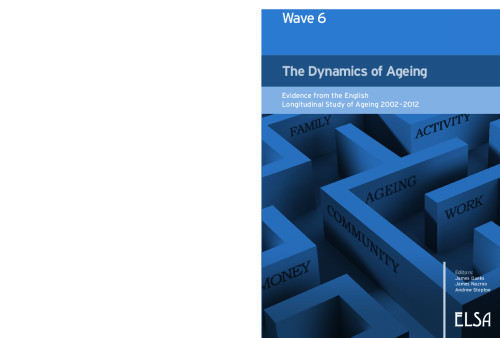The English Longitudinal Study of Ageing is a multidisciplinary study of a large representative sample of men and women aged 50 and over living in England. ELSA was designed to understand the dynamics of ageing as people move through their later years and the relationships between demographic factors, economic circumstances, social and psychological factors, health, cognitive function and biology. The study began in 2002 and the sample is re-examined every two years. This report details the sixth wave of data collection, which was carried out in 2012–13. Wave 6 of ELSA involved both the standard face-to-face interview conducted in every wave and a nurse visit during which functional capacity, physiological measures and biomarkers were assessed.
ELSA provides crucial evidence about population ageing that is relevant in a variety of policy arenas, from pensions and later-life working practices to health, well-being, transport, social engagement and cultural activity. It is also a valuable resource for academic researchers involved in economics, epidemiology and social science. An immense amount of detailed information has been collected from participants in the study, and a single report cannot do justice to the depth and richness of the data set. Accordingly, this report focuses on three issues that are of importance to public policy and scientific investigation:
- intergenerational financial transfers and the distribution of wealth;
- the evolution of lifestyles at older ages;
- trends in obesity among older people.
The report also includes a detailed set of tables describing findings in the different domains included in ELSA, including demographics, income, pensions and wealth, social and cultural activity, cognitive function, physical and mental health, and biomarkers. The tables include cross-sectional analyses of participants in wave 6 and longitudinal analyses of individuals who have remained in the study since wave 1. These tables provide the reader with a wealth of information about the experience of ageing in the early 21st century and will stimulate further investigation of this important study.










